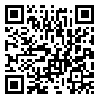1. Pirak A, Negarandeh R, Khakbazan Z. Post-Divorce Regret among Iranian Women: A Qualitative Study. Int J Community Based Nurs Midwifery 2019; 7(1):75-86. [
DOI] [
PMID] [
PMCID]
2. Wolchik SA, Tein JY, Sandler IN, Kim HJ. Developmental cascade models of a parenting-focused program for divorced families on mental health problems and substance use in emerging adulthood. Dev Psychopathol 2016; 28(3):869-88. [
DOI] [
PMID] [
PMCID]
3. Jalili L, Najar S, Nezamivand-Chegini S, Yaralizadeh M. The Relationship between Factors Related to Divorce Request and Mental Health among Divorce Applicant Women Referred to Legal Medicine Organization in Ahvaz, Iran. J Family Reprod Health 2017; 11(3):128-37. [
PMID] [
PMCID]
4. Rosenström T, Fawcett TW, Higginson AD, Metsä-Simola N, Hagen EH, Houston AI, et al. Adaptive and non-adaptive models of depression: A comparison using register data on antidepressant medication during divorce. PLoS One 2017; 12(6):e0179495. [
DOI] [
PMID] [
PMCID]
5. Rognmo K, Torvik FA, Idstad M, Tambs K. More mental health problems after divorce in couples with high pre-divorce alcohol consumption than in other divorced couples: results from the HUNT-study. BMC Public Health 2013; 13:852. [
DOI] [
PMID] [
PMCID]
6. Okur Güney ZE, Sattel H, Witthöft M, Henningsen P. Emotion regulation in patients with somatic symptom and related disorders: A systematic review. PLoS One 2019; 14(6):e0217277. [
DOI] [
PMID] [
PMCID]
7. Hazrati M, Hamid TA, Ibrahim R, Hassan SA, Sharif F, Bagheri Z. The Effect of Emotional Focused Intervention on Spousal Emotional Abuse and Marital Satisfaction among Elderly Married Couples: A Randomized Controlled Trial. Int J Community Based Nurs Midwifery 2017; 5(4):329-34. [
PMID] [
PMCID]
8. Wilms R, Lanwehr R, Kastenmüller A. Emotion Regulation in Everyday Life: The Role of Goals and Situational Factors. Front Psychol 2020; 11:877. [
DOI] [
PMID] [
PMCID]
9. Ghorbani-Amir HA, Moradi O, Arefi M, Ahmadian H. The Effectiveness of Cognitive Behavioral Components Training on Emotional Cognitive Adjustment, Resilience and Self-Controlling Strategies among Divorced Women. Salamat Ijtimai (Community Health) 2020; 7(2):166-74. [
Article]
10. Karimi N, Naziry G. Predicting the rate of cigarette smoking based on resilience and cognitive emotion regulation in the non-clinical population of Shiraz, Iran, 2016. Journal of Occupational Health and Epidemiology 2018; 7(4):213-21. [
DOI]
11. Li L, Zhu X, Yang Y, He J, Yi J, Wang Y, et al. Cognitive emotion regulation: characteristics and effect on quality of life in women with breast cancer. Health Qual Life Outcomes 2015; 13:51. [
DOI] [
PMID] [
PMCID]
12. Akhlaghi Yazdi Nejad F, Hossein Sabet F, Borjali A. Effectiveness of emotion regulation training on increasing self-efficacy and well-being in drug-dependent individuals. Journal of Occupational Health and Epidemiology 2017; 6(1):9-16. [
DOI]
13. Fassbinder E, Schweiger U, Martius D, Brand-de Wilde O, Arntz A. Emotion Regulation in Schema Therapy and Dialectical Behavior Therapy. Front Psychol 2016; 7:1373. [
DOI] [
PMID] [
PMCID]
14. Martin CG, Roos LE, Zalewski M, Cummins N. A Dialectical Behavior Therapy Skills Group Case Study on Mothers with Severe Emotion Dysregulation. Cogn Behav Pract 2017; 24(4):405-15. [
DOI]
15. Neacsiu AD, Tkachuck MA. Dialectical behavior therapy skills use and emotion dysregulation in personality disorders and psychopathy: a community self-report study. Borderline Personal Disord Emot Dysregul 2016; 3:6. [
DOI] [
PMID] [
PMCID]
16. Chapman AL. Dialectical behavior therapy: current indications and unique elements. Psychiatry (Edgmont) 2006; 3(9):62-8. [
PMID] [
PMCID]
17. Goodman M, Carpenter D, Tang CY, Goldstein KE, Avedon J, Fernandez N, et al. Dialectical behavior therapy alters emotion regulation and amygdala activity in patients with borderline personality disorder. J Psychiatr Res 2014; 57:108-16. [
DOI] [
PMID] [
PMCID]
18. Zamani N, Habibi M, Darvishi M. To Compare the Effectiveness of Dialectical Behavior Therapy and Cognitive Behavioral Group Therapy in Reducing Depression in Mothers of Children with Disabilities. Journal of Arak University of Medical Sciences 2015; 18(1):32-42. [
Article]
19. Afroundeh R, Saidzanozi R. Comparison of the effect of Pilates and traditional corrective exercises on lumbar lordosis in female students. Scientific Journal of Rehabilitation Medicine 2017; 6(3):84-94. [
DOI]
20. Derogatis LR. The psychosocial adjustment to illness scale (PAIS). J Psychosom Res 1986; 30(1):77-91. [
DOI] [
PMID]
21. Feghhi H, Saadatjoo SA, Dastjerdi R, Kalantari S, Alidousti M. The effect of a training program based on Roy’s adaptation model on psychosocial adaptation in patients with type II diabetes in Birjand, Iran. Journal of Diabetes Nursing 2016; 4(2):8-24. [
Article]
22. Garnefski N, Kraaij V. Cognitive emotion regulation questionnaire – development of a short 18-item version (CERQ-short). Pers Individ Dif 2006; 41(6):1045-53. [
DOI]
23. Besharat MA. Cognitive Emotion Regulation Questionnaire: Instruction and Scoring. Journal of Developmental Psychology 2017; 13(50):221-3. [
Article]
24. Linehan M. Cognitive-Behavioral Treatment of Borderline Personality Disorder. Illustrated Ed. New York, United States: Guilford Press, 1993.
25. Mami S, Ebrahimian S, Soltany S. Effectiveness of Dialectic Behavioral Therapy on Depression, Anxiety and Stress in Anorexia Nervosa Disorder: Four Case Study. Studies in Medical Sciences 2016; 27(5):384-92. [
Article]
26. Ramaiya MK, McLean C, Regmi U, Fiorillo D, Robins CJ, Kohrt BA. A dialectical behavior therapy skills intervention for women with suicidal behaviors in rural Nepal: A single-case experimental design series. J Clin Psychol 2018; 74(7):1071-91. [
DOI] [
PMID] [
PMCID]
27. Jamilian HR, Malekirad AA, Farhadi M, Habibi M, Zamani N. Effectiveness of group dialectical behavior therapy (based on core distress tolerance and emotion regulation components) one expulsive anger and impulsive behaviors. Glob J Health Sci 2014; 6(7 Spec No):116-23. [
DOI] [
PMID] [
PMCID]








